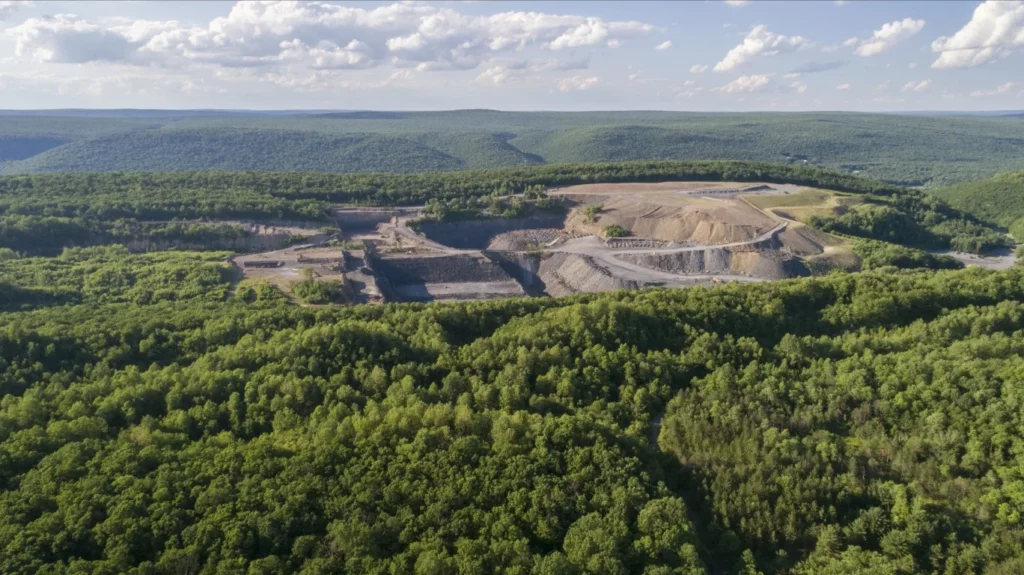The world is waking up to a critical truth. The energy transition and new technologies are poised to drive demand for metals to unprecedented heights. McKinsey’s Global Materials Perspective finds that by 2035, more than half of all growth in materials demand will come from clean-energy technologies. In addition to wind turbines and electric vehicles, new drivers, such as AI data centers and defense systems, will further pull on copper and other metals.
The result is clear: Asia (led by China) will soak up nearly half of this demand, while supply struggles to keep pace. McKinsey warns that closing the gap will require “trillions of dollars” of new investment and massive power expansion. Already, the profit centers of the global mining industry are shifting. 2024 saw revenues dip in coal and steel, even as copper, gold, and aluminum captured the biggest share of earnings. In short, coal and steel are yesterday’s business; today’s hotspots are the so-called “transition” minerals needed for the clean-energy economy.
Armenia’s Mining Potential in a Clean‑Energy World
Armenia’s mountains are rich in exactly the metals McKinsey says the world will need. Industry leaders note this surge. Chairman and Co-Founder of the International Chamber of Mines of Armenia, Artyom Geghamyan, points out that copper prices have been above $9,000/ metric ton and the International Energy Agency (IEA) forecasts a major supply crunch by 2035: “Armenia can be a major contributor in the wake of this global demand”. At the same time, Armenia is not merely a supplier of ore; it is staking a claim in the digital economy. A nearly 500-million-dollar AI supercomputing hub, announced by NVIDIA, Firebird, and Team Group, backed by the government, will bring thousands of modern GPUs and more than 100MW of scalable power capacity to the country by 2026. That project is direct proof that materials and computers are moving in tandem, chips and data centers demand metals, and metals demand power, infrastructure, and a predictable policy. Armenia can and should be present on both fronts.
The Net-Zero Circle analyst, Ibtissam El Assad, echoes the point: “With copper and other critical minerals expected to remain in high demand for decades, Armenia’s trajectory will be defined by how effectively it can translate geological wealth into durable economic benefits.” In short, Armenia’s copper, molybdenum and even antimony, once Soviet-era backwater resources, now qualify as “transition minerals” in a global economy. Experts specifically label Armenia’s copper, molybdenum, and antimony among the new category of metals whose long-term demand is skyrocketing. The window is open, and Armenia’s output grew about 11% per year even under older methods. If Armenia scales responsibly, it could ride the biggest mineral boom of our era. However, this transition won’t happen overnight. The world will pay top dollar for the metals that build the clean economy, and those who organize supply, add value, and guarantee standards will reap the rewards.
The global materials race is on, and McKinsey’s report is a wake-up call.. The surge in critical minerals demand will reshape economies. For Armenia, this is a historic opportunity, but only if the country seizes it decisively. Policymakers must cut red tape and set clear rules. Investors must commit capital under fair terms and demand the reforms they need. Mining companies must prioritize safety, transparency, and modern practices over the old ways of doing business, alongside civil society leaders treated as partners, with transparent consultations reducing risks and creating trust and legitimacy, which in this market is worth as much as any mineral deposit.
The energy transition will not wait. Only by acting boldly and collaboratively can Armenia turn its mineral wealth into a foundation of sustainable prosperity. The verdict of history is unwritten, but the clock is ticking; the time to mine for Armenia’s future is now.


